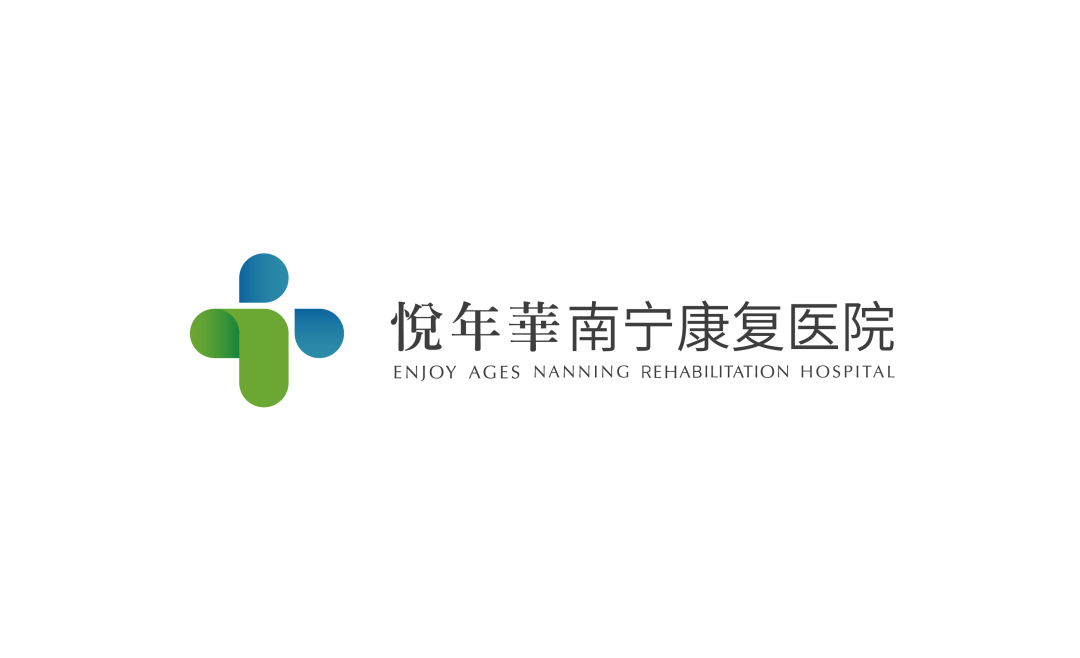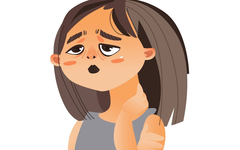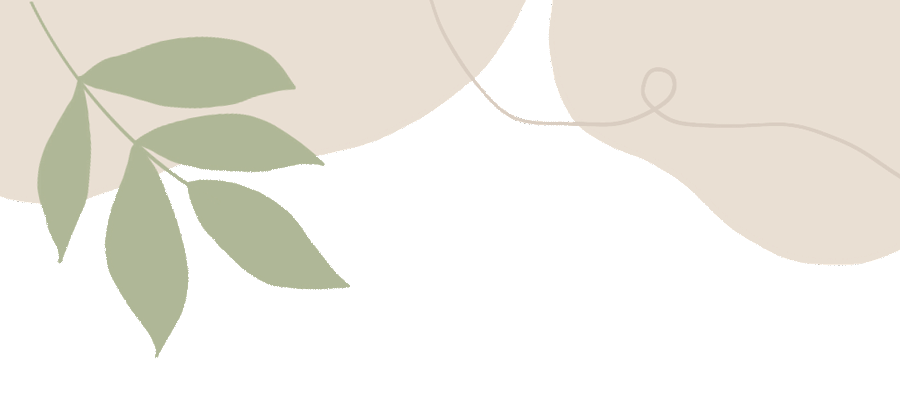
×
What to Eat for Blood Supplementation in Anemia?
Many People Are Eating Wrong!
— Yuenianhua Nanning Rehabilitation Hospital Science Popularization —
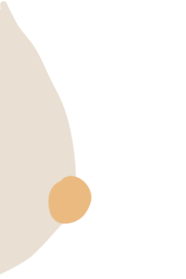
Anemia is very common, and everyone is likely familiar with it.
The proportion of female patients is higher than that of males, with common symptoms including dizziness, fatigue, pale complexion, cold hands and feet, and difficulty concentrating.
So how can one determine if they are anemic?
It is a human instinct; every breath is the cornerstone of life energy.
-01-
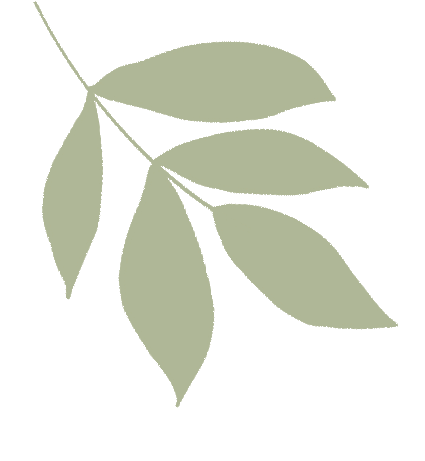
Basic Understanding of Anemia

Clinically, anemia can be checked through a complete blood count (see the table below):

After diagnosing anemia, the severity can also be classified based on hemoglobin levels (see the table below):

There are many causes of anemia, such as iron deficiency anemia, megaloblastic anemia, aplastic anemia, hemorrhagic anemia, hemolytic anemia, and thalassemia, etc.
If anemia is caused by certain nutritional deficiencies, proper dietary intake can be very effective for blood supplementation!
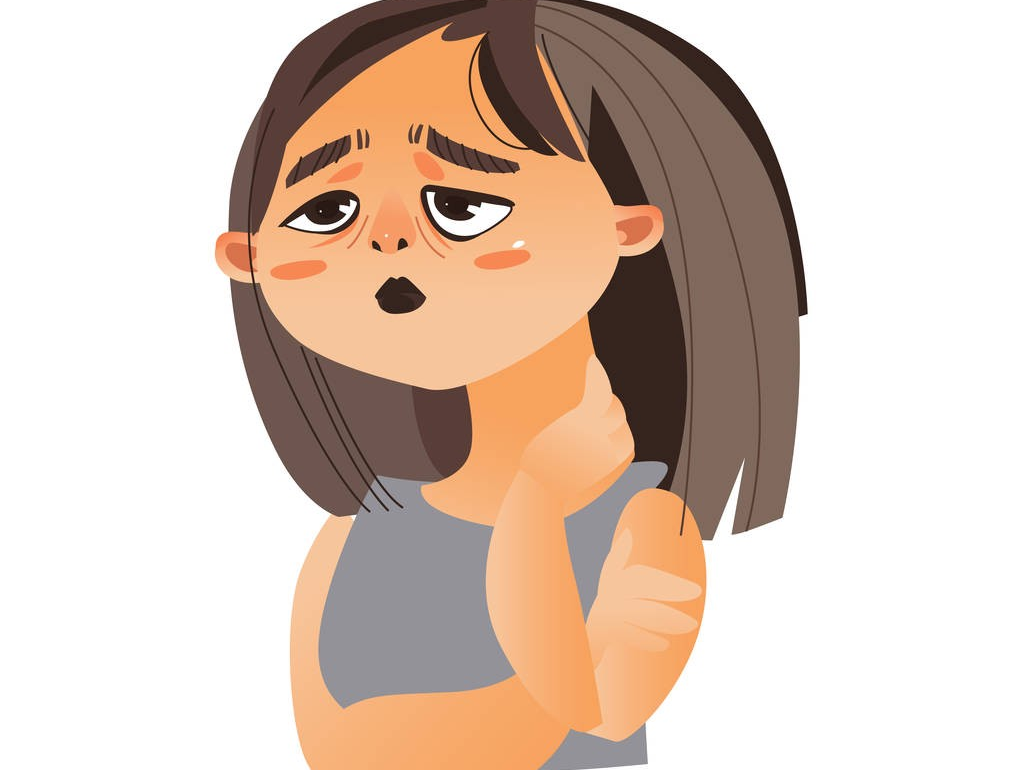

-02-

Common Misunderstandings About Blood Supplementation

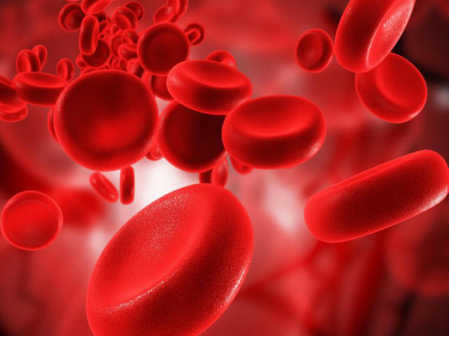
Misunderstanding One
Relying Solely on Red Dates for Blood Supplementation
In Traditional Chinese Medicine (TCM), red dates (Hongzao) are sweet and warm in nature, entering the spleen and stomach meridians, and have the functions of tonifying the middle, benefiting qi, nourishing blood, and calming the spirit.
Modern medicine has found that red dates contain various nutrients such as proteins, carbohydrates, and vitamin A. However, every 100 grams of dried dates contains only 2 mg of iron, which is very low compared to foods like animal blood. The iron in red dates is non-heme iron, which has a low absorption rate in the human body. Additionally, red dates contain a large amount of sugar, with a sugar content of 67.8 g per 100 grams of dried dates, and excessive sugar intake can burden the body.
As the saying goes, “Eating three dates a day leads to immortality,” it is important to consume red dates in moderation and not rely solely on them for blood supplementation.
Misunderstanding Two
Relying on Brown Sugar for Blood Supplementation
Many elders believe that drinking brown sugar water can supplement blood. Brown sugar is unrefined sugar, primarily composed of carbohydrates, and contains very little iron and minerals. Drinking brown sugar water does not effectively supplement blood.
Misunderstanding Three
Relying on Ejiao for Blood Supplementation
Ejiao is made from donkey hide, which is primarily composed of collagen. In nutrition, collagen is considered a low-quality protein with a very low absorption rate in the body. Relying on Ejiao for blood supplementation does not play a significant role!

-03-

What to Eat for Effective Blood Supplementation

If you want to supplement blood through dietary therapy, the key is to replenish the raw materials for blood production. Iron, Folate, and Vitamin B12 are the three main raw materials for blood. “A skilled cook cannot make a meal without rice”; eating the right foods makes it easier to supplement blood:
01 Folate
Folate is widely found in various plant and animal foods, with liver, mushrooms, and green leafy vegetables being rich sources of dietary folate. The folate content in foods is shown in the table below[1]:
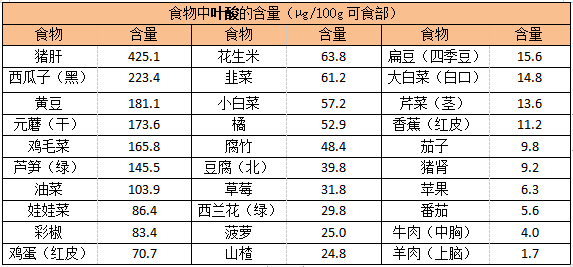
02 Vitamin B12
The richest sources of Vitamin B12 are dairy products, meat, eggs, fish, and shellfish. The Vitamin B12 content in foods is shown in the table below:
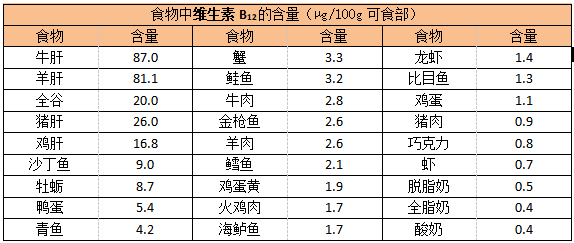
03 Iron
Iron is widely found in various foods, with heme iron being rich and highly absorbable in animal foods, such as animal liver, whole blood, chicken gizzards, and beef kidneys containing >10 mg/100 g of iron; lean meat, pork kidneys, and lamb kidneys containing >5 mg/100 g of iron. Plant foods, vegetables, and fruits have low iron content and low utilization rates. The iron absorption rate in eggs is also low. The iron content in foods is shown in the table below[2]:
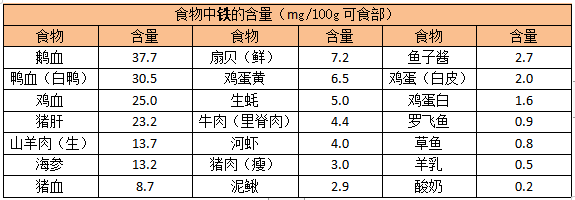
04 Vitamin C
Vitamin C can reduce ferric iron, which is difficult to absorb, to ferrous iron, promoting intestinal absorption of iron. Vitamin C can also reduce folate to biologically active tetrahydrofolate, preventing megaloblastic anemia. In addition to supplementing folate and iron, it is also necessary to ensure adequate Vitamin C intake from fresh vegetables and fruits[3].

-04-

Precautions for Iron Deficiency Anemia

01 Limit Tea Consumption
Tea contains up to 50% tannins, which can hinder the intestinal mucosa’s absorption of iron, thus reducing iron absorption.
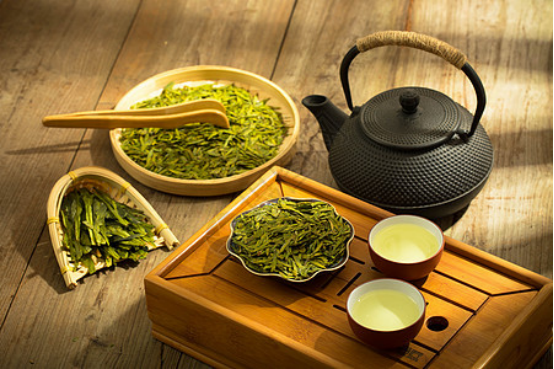
02 Limit Coffee Consumption
Polyphenols in coffee can form indigestible salts with iron, thus inhibiting iron absorption.

03 Moderate Milk Consumption
Milk has low iron content but contains a lot of phosphorus, which can form insoluble complexes with iron, leading to low iron utilization.
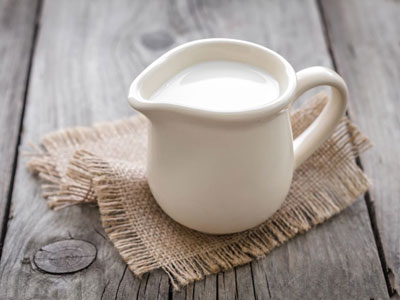
04 Do Not Blindly Supplement Iron Tablets
Excessive iron can lead to the production of reactive oxygen species and free radicals, causing damage to organs such as the liver, heart, and joints, and increasing the risk of atherosclerosis and cardiovascular diseases. If you want to supplement iron through iron tablets, it is recommended to do so under the guidance of a doctor.

References:
[1] Zhang Lishi, Lü Xiaohua, et al. Basic Nutrition [M] Beijing: Science Press, 2018: 159-164
[2] Yang Yuexin. China Food Composition Table 6th Edition/Volume 2 [M] Beijing: Peking University Medical Press, 2019
[3] Lu Meina, Zhu Xianjie. Comparison of the Efficacy of Vitamin C Combined with Different Iron Supplements in the Treatment of Iron Deficiency Anemia During Pregnancy [J]. Contemporary Medicine, 2022, 28(05): 164-166.
Contribution: Lin Hui
Editor: Yao Yujing
